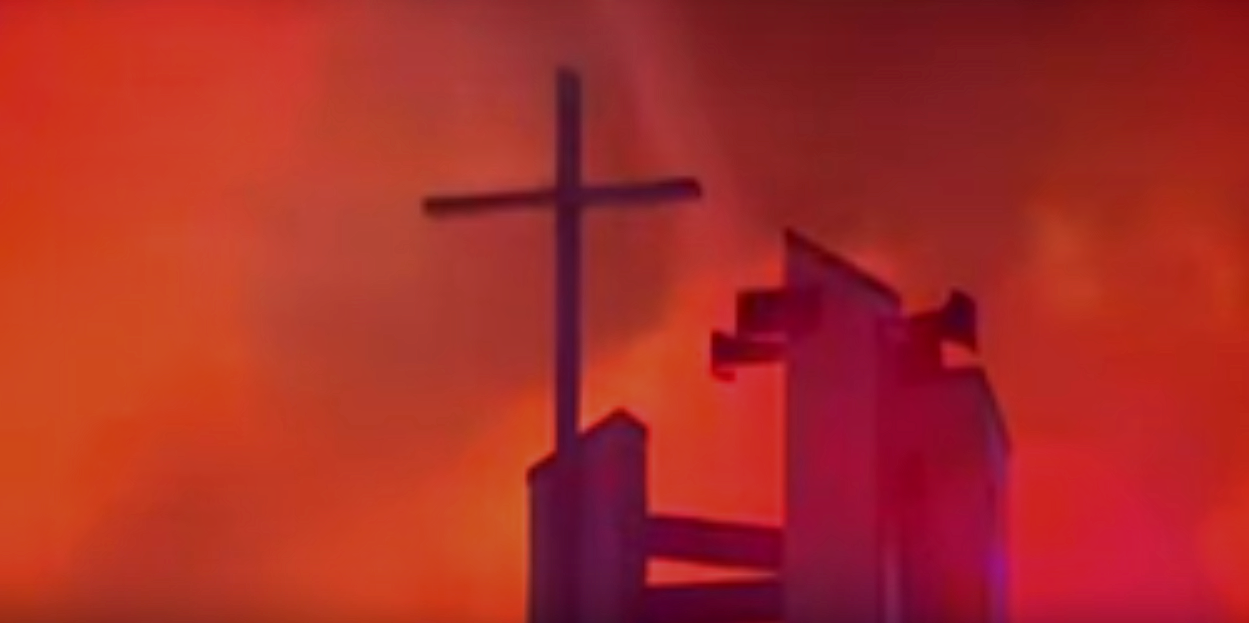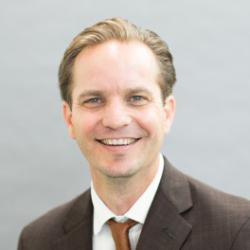
On May 1st, the feast of St. Joseph the Worker, a Catholic church named after the saintly carpenter and foster father to Jesus, tragically burned to the ground in Phoenix, Arizona.
On the very same May 1st in Europe it was a state holiday. It was International Workers’ Day, also known as Labor Day, when the workforce traditionally enjoys a day of ‘non-work’.
As Europeans picnicked and leisured, in the dark Arizona desert hell broke loose in the form of a fiery blaze to St. Joseph Church’s roof. Though only 50 year’s old, its demise seemed all too eerily similar to the inferno that devastated France’s Gothic Notre Dame Cathedral only a few weeks ago.
I have always had strange pangs about ‘enjoying’ any genuine non-work time on Labor Day, as a Catholic American living and working in Rome. I inevitably will find some excuse to get some work done, even if it is sweaty yard work. The Phoenix tragedy reminded me of my own spiritual and worker proclivities.
May 1st is not a day to navel gaze about our glorious work-related personal achievements. Much less is it a day to celebrate the public system nor a day to worship our laborious collective efforts within it. We are not supposed to celebrate ourselves as 9-to-5 heroes laboring Monday to Friday toward a semi-divine societal cause. It is what Marxist propagandists, who originally established the public holiday to commemorate the bloody Haymarket Square Riots of May 4, 1886, wanted their “valued” workers to think and feel. They wanted them to be honored as precious cogs in the wheels of their centrally planned and utopia-creating machines.
The burning down of St. Joseph’s Church in Phoenix may not be a symbolic coincidence after all, but rather a purposefully planned crime to desecrate Christianity’s supreme patron of work.
It conveniently falls along a sad trajectory of Christian bloodshed set in motion in the 20th century (like never before in human history) when collectivist dictators like Joseph Stalin, Adolf Hitler and Mao Zedong, sent millions to death for having a competing religious belief. They were murdered and worked to death in labor camps primarily for believing in a God who is the independent Author of their inalienable human rights and liberties. They did not fit into in the unbending homogeneous rules created by an Almighty Autocratic State with little respect for their individuality. So they were gotten rid of like rodents.
In brief, on May 1st, or any any other day, Christians are not supposed to celebrate heaven on earth or to worship their own work, but rather pay homage to a great saint in heaven. They are called to venerate the most exemplary human worker, St. Joseph, who dutifully labored for God, His Son, and to maintain His Holy Family. St. Joseph the Worker was the very antithesis of an impersonal State which seeks to replace family love and charity through public doles and welfare.
As Bishop Robert Barron, of the Archdiocese of Los Angeles, reminds us in a recent article “Violence against Christians and the Warnings of Reason”, we are to never forget – especially on May 1st, that it was State-worshiping communist and socialists leaders of our recent past who systematically executed the greatest number of Christians since the Church was founded.
“There were more Christian martyrs in the twentieth century than in all of the previous nineteen centuries combined. Hitler, Stalin, Mao, Pol Pot, and many of their lesser-known totalitarian colleagues put millions of Christians to death for their faith in that terrible hundred-year period,” Barron writes.
If the Phoenix church burning is, in fact, result of arson, it will go down in history as part of a series of unstoppable and intensifying global persecutions of Christians, their lives, and their houses of worship over the past few years. As we just witnessed with martyrs slain in the Sri Lanka Easter Sunday bombings, crosses painted in excrement on church walls and a murdered elderly priest in France, and just a few days ago in Cesena, Italy, as inebriated vandals entered yet another sanctuary to destroy its precious artifacts.
The question is will it ever cease? “One of the saddest features of the still-young twenty-first century,” Barron concludes, “is that this awful trend is undoubtedly continuing.”
The good news is there was hope seen when the flames were finally doused at St. Joseph’s Church in Phoenix. Just as in the aftermath of the Notre Dame fire, there stood tall and bright through the hot steam and smoldering embers a miraculously well-preserved Cross. It was an auspicious oracle to all those who follow God, the only Author of their rights: He and His Church will never perish at the hands of evil.
(Photo credit for featured image: Screenshot from YouTube)

